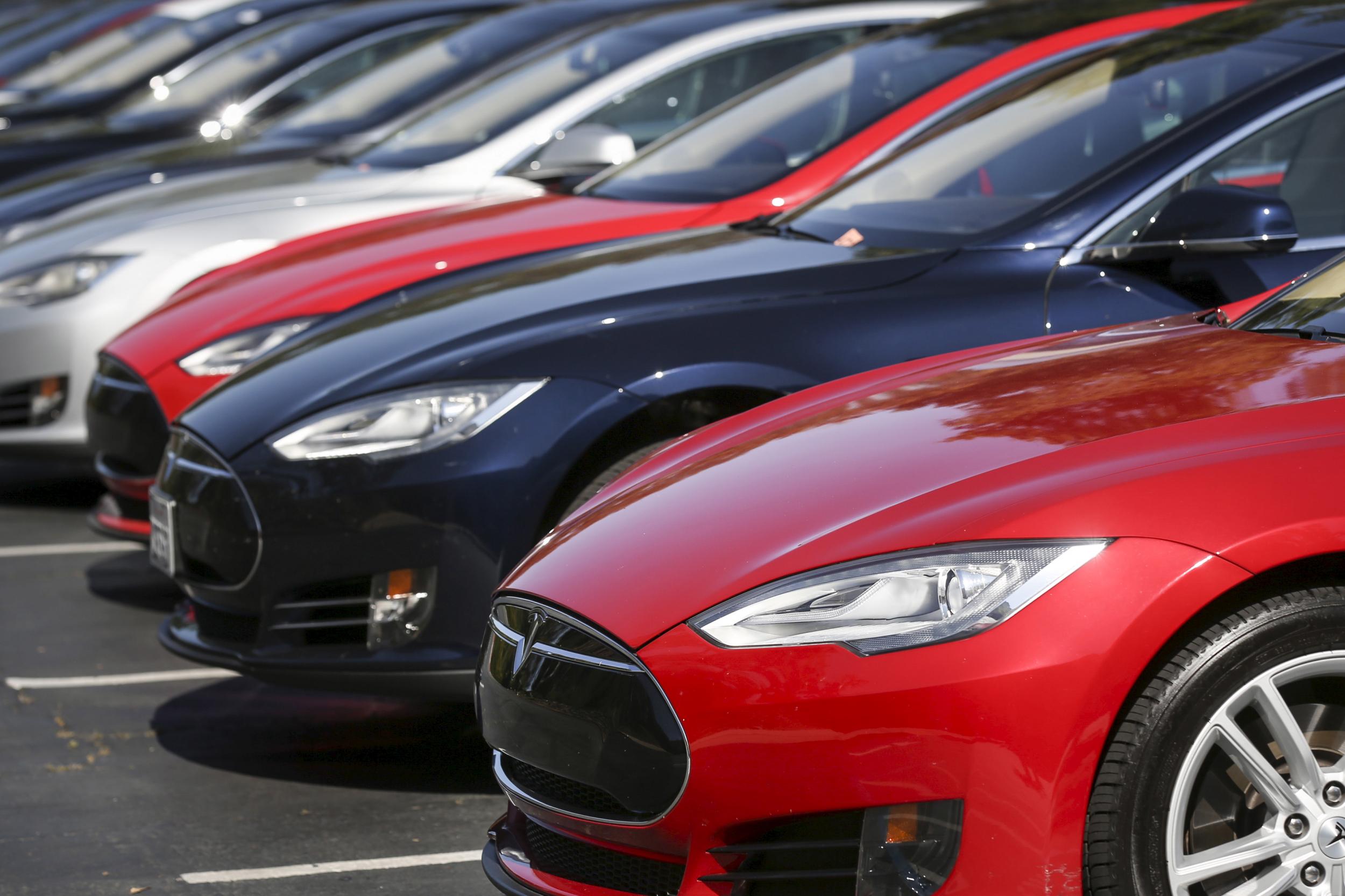Florida jury finds Tesla 1 per cent negligent in the case of two teens killed in fiery crash
Barrett Riley, 18, crashed into a wall after speeding at 116mph around a curve with a posted speed limit of 25mph

Your support helps us to tell the story
From reproductive rights to climate change to Big Tech, The Independent is on the ground when the story is developing. Whether it's investigating the financials of Elon Musk's pro-Trump PAC or producing our latest documentary, 'The A Word', which shines a light on the American women fighting for reproductive rights, we know how important it is to parse out the facts from the messaging.
At such a critical moment in US history, we need reporters on the ground. Your donation allows us to keep sending journalists to speak to both sides of the story.
The Independent is trusted by Americans across the entire political spectrum. And unlike many other quality news outlets, we choose not to lock Americans out of our reporting and analysis with paywalls. We believe quality journalism should be available to everyone, paid for by those who can afford it.
Your support makes all the difference.A Florida jury found that Tesla Inc was 1 per cent responsible in the death of a teenager who crashed a Model S sedan into a concrete wall after the electric car’s speed limiter had been deactivated.
Barrett Riley, 18, and his father James Riley, were found to be 99 per cent responsible for the teen’s death, the verdict from the federal Fort Lauderdale jury ruled Tuesday in what lawyers for the family described as the first trial against the electric-car maker over an accident involving one of their vehicles.
In the case, the parents of Barrett, Mr Riley and Jenny, sought to prove that the electric-car giant was responsible for the 8 May 2018 death of their son, alleging that it was the Model S’s batteries that caused the car to ignite after Barrett lost control of the vehicle from speeding around a curve where the posted speed limit was 25mph (40mph) at 116 mph (187kph) and crashing into a concrete wall.
Mr Riley argued in the case that Barrett and another teenage victim, 18-year-old Edgar Monserratt Martinez, had both initially survived the crash but had later died after the car burst into flames.
Attorneys representing the Rileys also argued during the proceedings that a Tesla technician had, without the consent of the owner of the Model S sedan, Mr Riley, disabled the speed limiter which had been installed at the parents’ request to keep the car from going above 85mph (137kph).
In the opening arguments of the trial, Curtis Miner, the attorney representing the Rileys, told a jury that billionaire chief executive Elon Musk had personally told Mr Riley during a phone call after the May 2018 accident that the technicians for his company shouldn’t have removed the device from the vehicle that was intended to cap its speed without the consent of the car’s owner.
“Well, I guess we shouldn’t have taken the limiter off,” Mr Riley said Mr Musk told him when he took the witness stand earlier this month to testify against Tesla, according to Fortune.
Lawyers for the electric-car maker, however, countered Mr Miner’s narrative, arguing that the speed limiter wouldn’t have made a difference in the deadly 2018 car crash.
“A speed limiter is not a safety device,” Vince Galvin, the attorney representing Tesla said during the opening arguments. “Is it all right if they crash at 85mph instead of 116mph?”
The lawyers for the tech giant strived to further distance the company from responsibility for the crash, contending that the teen had “tricked” the Tesla staff to disable the speed limiter.
“Tesla is not in a position to police the Rileys’ children,” Mr Galvin said. The Tesla attorney also disputed the contents of the phone call that allegedly occurred between Mr Riley and Musk, stating that if the CEO had admitted to the company being at fault, this would’ve come up during the father’s interview with the National Transportation Safety Board, but instead he “disclosed nothing”.
Ultimately, the jury sided with placing a lion’s share of the blame on Barrett, who investigators had noted had a history of problematic driving, which included receiving a speeding ticket just two months before the fiery crash for going 112mph (180kph).
In addition to Barrett, the jury also placed 9 per cent of the negligence on the father.
The jury awarded Mr Riley and Mrs Riley a respective $4.5m and $6m of damages for pain and suffering, which the judge noted could be reduced based on the negligence findings.
Though it was not at issue in the Rileys’ case, the Autopilot feature on Teslas has recently fuelled lawsuits and regulatory probes over crashes involving the feature.
Most recently, a California family retained a prominent personal injury law firm to represent them in the wake of a crash that left two dead after their 2015 Tesla slammed into the back of a freight truck near Gainesville, Florida.
“We are in the very early stages of our investigation to determine what caused this deadly collision and have requested Tesla preserve all evidence related to this matter,” the firm said, according to NBC.
The Florida Highway Patrol released a statement earlier this month stating that they were still unclear about what caused the crash and could not confirm whether the electric-car’s self-driving system was engaged at the time.



Join our commenting forum
Join thought-provoking conversations, follow other Independent readers and see their replies
Comments